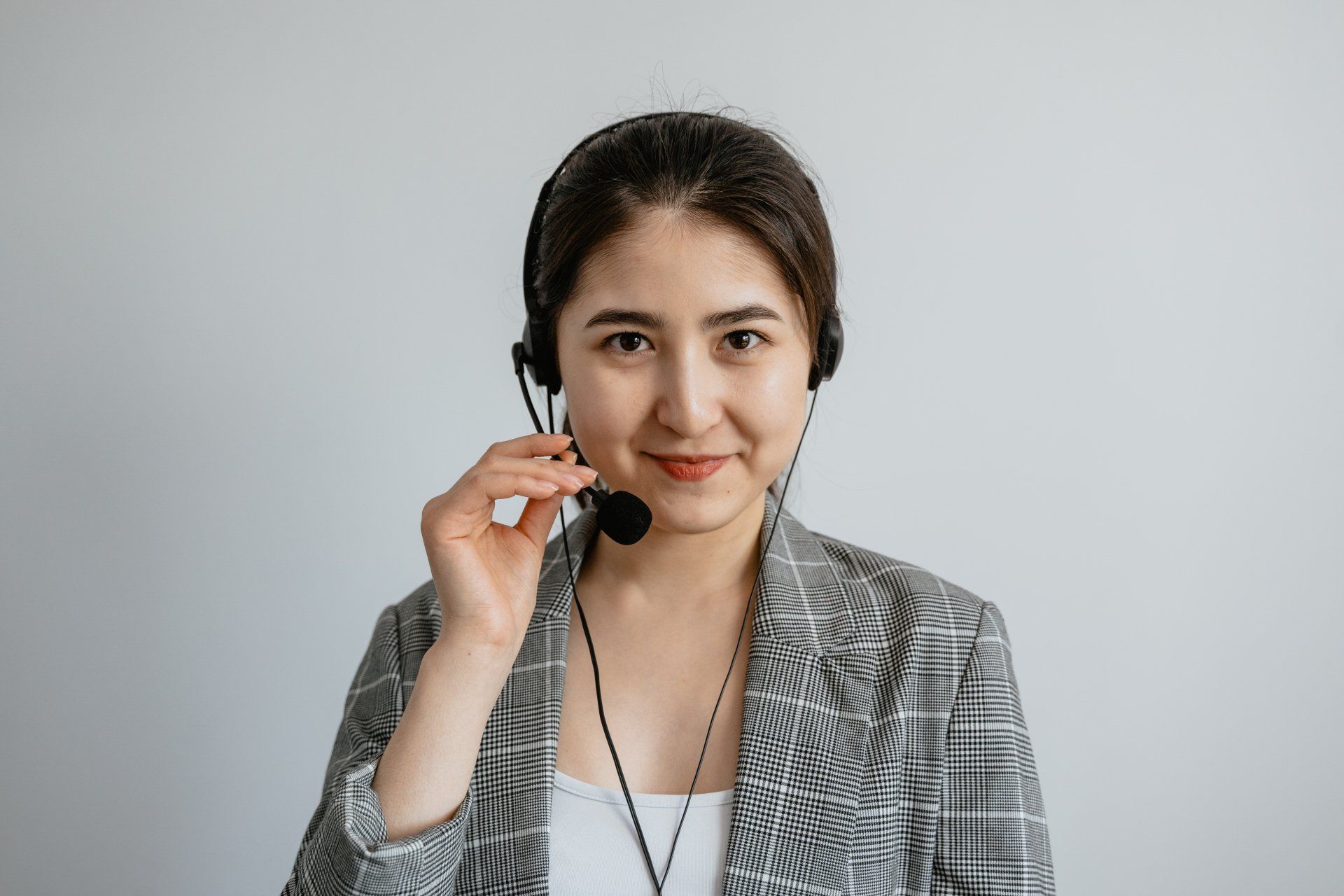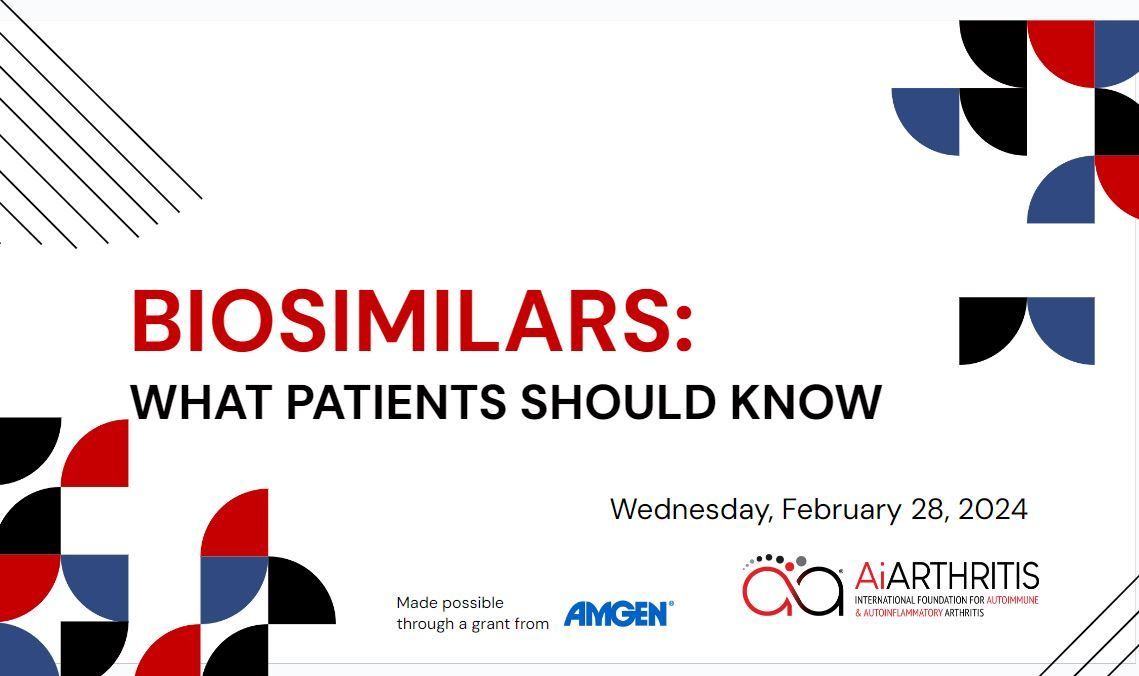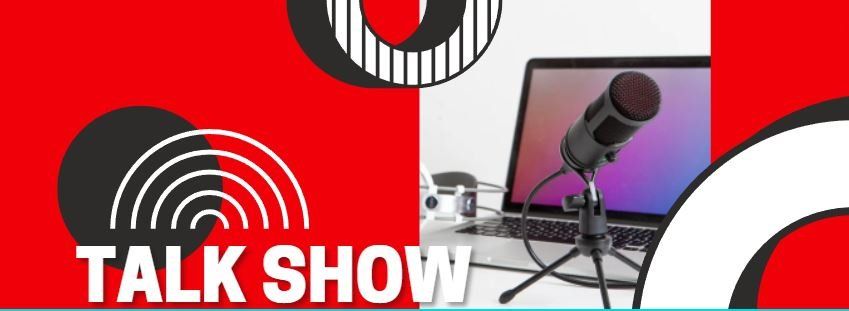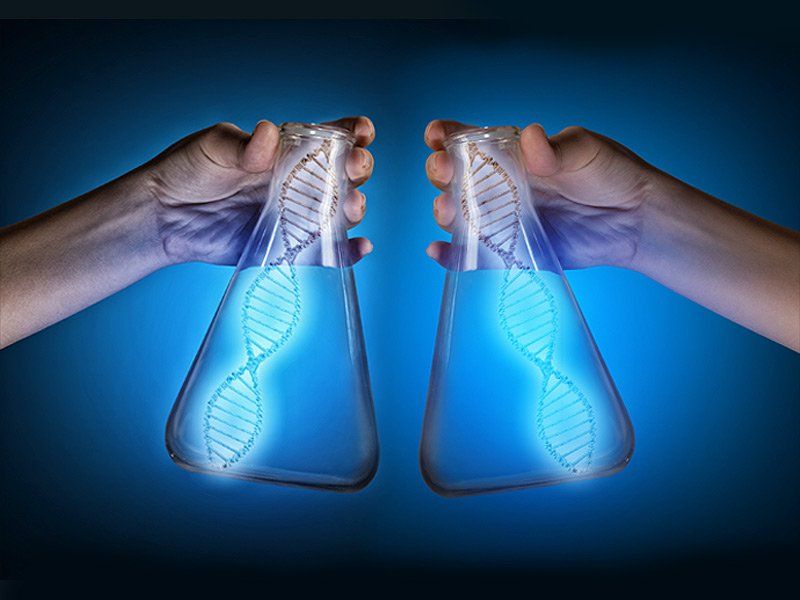Biosimilar Education
We focus on listening to comments and concerns from the patient community in regards to biosimilars. Based on that information, we help create educational materials so they understand what they are and how they may affect our healthcare system.

PEER-LED BIOSIMILARS HOTLINE
We understand you may have questions. We are here to help!
Our leadership includes people diagnosed with these conditions and who use biologics and biosimilars. We are here as educators, peers, and supporters.
Let us know what's on your mind by submitting your questions and comments about biosimilars.
CHECK OUT OUR PATIENT-LED BIOSIMILARS RESOURCES
RESOURCES
**Happy Hour**
What is a biosimilar?
A biosimilar is a drug that is designed to be very similar to an existing biologic (called the reference product). The key word is "similar"; they are not generic versions of biologics. To be a generic drug, the new treatment must be an exact copy of the product it intends to replicate. Treatments, like aspirin, are chemically manufactured with simple structures – this makes them simple to replicate into a generic form. A biologic and a biosimilar are not chemically manufactured. They are both produced by living cells – in other words, they are grown, not made, so their structure is very complex. Biosimilars have been on the market in Europe for several years, but only recently have come to market in the US and Canada.
Our organization is a member of the Alliance for Safe Biologic Medicines (ASBM), the main coalition (international) working on legislative (access) issues related to biosimilars. In June 2018, we were one of first organizations invited to advise the US Food and Drug Administration (FDA) as they develop new patient education materials about the biosimilars regulatory process.
- Providing patients with easy to understand educational materials about the safety and efficacy of biosimilars, in addition to information relevant to help them communicate with their physician about this option for their personal care.
- Patient access to the best treatment options for them as determined by the patient and their healthcare provider, whether a biosimilar or reference biological product.
- Patients who are stable on an existing biologic treatment should not be required to switch to a biosimilar if there is any concern from their practitioner that doing so could disrupt continuity of care.
- Patients who are newly diagnosed, or who are not stable on an existing treatment, should use a biosimilar product when recommended by their physician and available in their country.
- Working with the FDA, EMA, and other regulatory agencies to ensure that relevant information is accurate, consumable, and readily accessible for patients and providers.
Some of the most commonly asked questions
Patient-Led Resources
Webinar: Watch the Recording!
Biosimilars: What Patients Should Know
Biosimilars are highly similar (and potentially lower cost) alternatives to the biologic medicines commonly used to treat AiArthritis diseases.
Many health plans and governments (depending where in the world you live) are increasingly switching their patients to biosimilars to try control costs, but many physicians and patients still have concerns about switching. Then again, several patients HAVE made the switch and now can help the rest of us navigate the journey.
Watch the recording of Tiffany, AiArthritis CEO and person with Axial Spondyloarthritis, Ray, AiArthritis Patient Advocate Consultant and person with Psoriatic Arthritis, Deb and Rick - patients with rheumatoid arthritis who have switched to a biosimilar and share their experiences, and Dr. Vibeke Strand, rheumatologist - and all the conversation in the chat.
We answer a lot of your questions regarding biosimilar safety, potential "nocebo effect" (which is potentially causing a biosimilar not to work based on strong negative feelings or fear), and more.
Transcript, with all the Q and A's answered, coming soon!



AiArthritis Voices 360 Talk Show: Biosimilars - Interchangeability and Switching 2023
What do patients need to know about the upcoming changes to biosimilars and interchangeability in 2023?
In this episode, Tiffany is joined by esteemed guest experts Michael Reilly, Dr. Ralph McKibbin and Andrew Spiegel to explore the crucial distinctions between interchangeability, automatic substitution, and non-medical switching. Gain valuable insights into how these differences impact patients not only in the USA but also on a global scale.
In addition, our guests discuss the latest proposed bills in the US regarding biosimilar interchangeability, offering expert perspectives on the legislative developments and their implications for patients and healthcare providers alike.
Join us on this episode as we explore the latest updates in biosimilar interchangeability and share ways to raise your voice against non-medical switching without physician involvement.
This episode supported by:



AiArthritis Voices 360 Talk Show Episode 77: Biosimilars - What patients should know
Join Tiffany Westrich-Robertson, CEO of AiArthritis and person living with spondyloarthritis, as she welcomes three experts - Dr. Ralph McKibbin, Andrew Speigel, and Michael Reilly - who all have leading roles in the Alliance for Safe Biologic Medicines coalition (which AiArthritis is a member). Today we put the topic of biosimilars on the table, but this is just the beginning.
In this first hour, listen to the patient voices, a doctor, and biosimilar access and switching experts, as they discuss some important topics such as What are Biosimilars, What is Non-Medical Switching (being switched your medication for cost savings and not for medical reasons), and more. Then check out all the bite-sized "360it" segments from the episode AND that continue the discussion post-episode!

FEATURE RESOURCE: Download the Patient Education Biosimilars Toolkit
Includes key terms to understand, questions to ask your doctor, and more. Designed and published by the World Patient Alliance and the Global Colon Cancer Association, 2022.
Other Suggested Resources:
International
- Alliance for Safe Biologic Medicines serves as an authoritative resource center for the public, medical community, the U.S. Food and Drug Administration and government regulators worldwide as biosimilars policies are developed and implemented. Learn more.
- Biosimilars Training for Patient Advocacy Organizations (and Patients). Free educational virtual training that provides tools to help you better understand biosimilars. https://learnbiosimilars.org/
United States
- US Food & Drug Administration. Learn more.
- Global Healthy Living Foundation/CreakyJoints "Patient Guide for Understanding Biosimilars" Learn more.
- Arthritis Foundation Learn more.
- American College of Rheumatology (ACR) on biosimilars.
Learn more.
Canada
- Biosim•Exchange, a program by Arthritis Consumer Experts (ACE)/JointHealth where you can get the latest biosimilars news and background analysis. Learn more.
- Health Canada is the Federal department responsible for helping Canadians maintain and improve their health, while respecting individual choices and circumstances. They are also responsible for regulating biosimilars in Canada.
Learn more.
Europe
- European Medicines Agency (EMA). The Agency is responsible for assessing applications from companies to market biological medicines for use in the European Union (EU), including biosimilar medicines. The European Commission issues decisions concerning the authorization of biosimilars on the basis of the scientific opinions from the EMA. Learn more.
- European League Against Rheumatism (EULAR) position on biosimilars. Learn more.
- Global Alliance for Patient Access (GAfPA) is the International Network of Physicians & Advocates for Patient Access, primarily working in Europe, Latin America, Asia, and Australia.
Learn more.
Australia
- Australian Government Department of Health/The Australian Government’s Pharmaceutical Benefits Scheme (PBS) provides reliable, timely and affordable access to a wide range of medicines for all Australians.
Learn more.
Thank you to our program sponsors:





